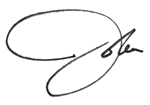Be Fearful When Others are Greedy
 Consumers are confident.
Consumers are confident.
That has me nervous.
In fact, they’re the most confident they’ve been in more than a decade. The Reuters/University of Michigan Consumer Sentiment Index just registered its highest reading since 2004.
That should be good for the economy, right?
Well, consumers are people, and people as a whole are terrible at predicting much of anything. They’re even worse when it comes to financial matters.
For example, consider some consensus views of the stock market.
Individual investors held the highest allocation to stocks ever in 2000, at 77%. That was also the lowest cash position ever, at 7%, leaving no cushion to soften a major blow. For you history buffs, that wasn’t too long before the market cracked and many technology stocks fell over 90% as the Internet Bubble popped and deflated.
Then, in 2009, individual investors held just 41% in stocks at the market lows in March 2009. That represented the lowest equity allocation ever – right in front of one of the most monstrous bull markets in history.
It’s a bull market we’re still living through, in fact.
It might be a bit old and tired, but this baby has legs!
I subscribe to my own theory of wealth management, the “George Costanza Theory of Money.” You may remember George from the iconic 1990s sitcom Seinfeld. He gets into all sorts of trouble from episode to episode, brightening my day with plenty of laughter an untold number of times.
Here’s just one “George” story.
One day, fed up with all his continued misfortune, George decides to do the exact opposite of everything he thinks he should do. Throughout his life, his gut instinct has caused him nothing but problems.
But when he starts doing the exact opposite of what he thinks he should do, life starts going his way.
First, he lands a beautiful girlfriend. Then, he gets a job offer with the New York Yankees. Finally, he snags an apartment that allows him to finally move out of his parents’ house.
Life is grand for George!
The average investor or consumer is the typical George – before he decides to do the exact opposite of what he thinks he should do.
Collectively, we make bad decisions because we’re driven by emotion. And, at best, all we can get is “average.” Otherwise, we’d all be sitting rich on a beautiful sandy beach, drinking Bahama Mamas, and watching our online trading account balances soar.
That’s why when folks are incredibly optimistic, I get nervous. When they’re spending money hand over fist, I’m squirreling it away for a rainy day. When they’re pessimistic about the economy and their own prospects, I’m looking to spend money to obtain the best deals in years.
In the short term, these might be good indicators of economic growth – for a quarter or two. But there’s no greater contrary indicator than when masses of people are at multi-year highs in optimism. Any short-term benefit will be wiped out when the pendulum swings the other way.
So, while the popular media might cheer the 14-year high in confidence, please remember George.
And proceed with caution.
Good luck out there,

John
This post was originally published on Economy & Markets and can be seen here.
